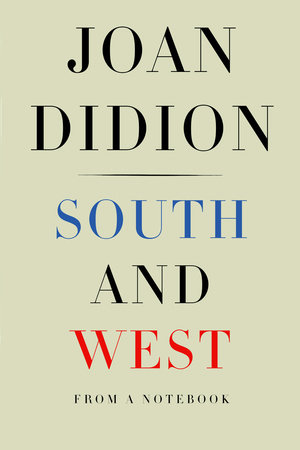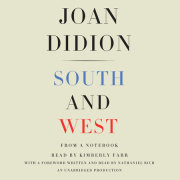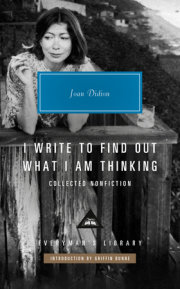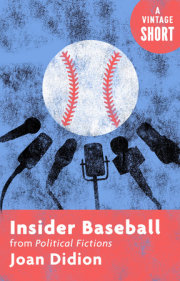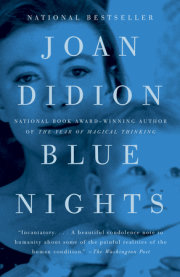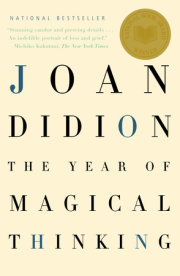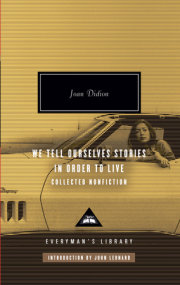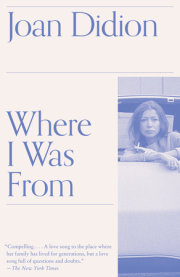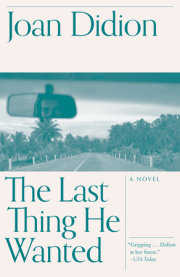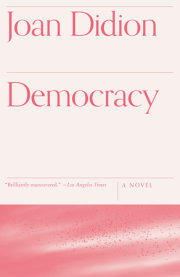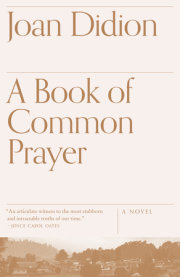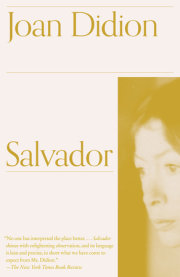New Orleans
. . . the purple dream
Of the America we have not been,
The tropic empire, seeking the warm sea,
The last foray of aristocracy . . .
—Stephen Vincent Benét,
John Brown’s BodyWould that I could represent to you the dangerous nature of the ground, its oozing, spongy, and miry disposition . . .
—John James Audubon,
The Birds of America, 1830
In New Orleans in June the air is heavy with sex and death, not violent death but death by decay, overripeness, rotting, death by drowning, suffocation, fever of unknown etiology. The place is physically dark, dark like the negative of a photograph, dark like an X-ray: the atmosphere absorbs its own light, never reflects light but sucks it in until random objects glow with a morbid luminescence. The crypts above ground dominate certain vistas. In the hypnotic liquidity of the atmosphere all motion slows into choreography, all people on the street move as if suspended in a precarious emulsion, and there seems only a technical distinction between the quick and the dead.
One afternoon on St. Charles Avenue I saw a woman die, fall forward over the wheel of her car. “Dead,” pronounced an old woman who stood with me on the sidewalk a few inches from where the car had veered into a tree. After the police ambulance came I followed the old woman through the aqueous light of the Pontchartrain Hotel garage and into the coffee shop. The death had seemed serious but casual, as if it had taken place in a pre-Columbian city where death was expected, and did not in the long run count for much.
“Whose fault is it,” the old woman was saying to the waitress in the coffee shop, her voice trailing off.
“It’s nobody’s fault, Miss Clarice.”
“They can’t help it, no.”
“They can’t help at all.” I had thought they were talking about the death but they were talking about the weather. “Richard used to work at the Bureau and he told me, they can’t help what comes in on the radar.” The waitress paused, as if for emphasis. “They simply cannot be held to account.”
“They just can’t,” the old woman said.
“It comes in on the radar.”
The words hung in the air. I swallowed a piece of ice.
“And we get it,” the old woman said after a while.
It was a fatalism I would come to recognize as endemic to the particular tone of New Orleans life. Bananas would rot, and harbor tarantulas. Weather would come in on the radar, and be bad. Children would take fever and die, domestic arguments would end in knifings, the construction of highways would lead to graft and cracked pavement where the vines would shoot back. Affairs of state would turn on sexual jealousy, in New Orleans as if in Port-au-Prince, and all the king’s men would turn on the king. The temporality of the place is operatic, childlike, the fatalism that of a culture dominated by wilderness. “All we know,” said the mother of Carl Austin Weiss of the son who had just shot and killed Huey Long in a corridor of the Louisiana State Capitol Building in Baton Rouge, “is that he took living seriously.”
As it happens I was taught to cook by someone from Louisiana, where an avid preoccupation with recipes and food among men was not unfamiliar to me. We lived together for some years, and I think we most fully understood each other when once I tried to kill him with a kitchen knife. I remember spending whole days cooking with N., perhaps the most pleasant days we spent together. He taught me to fry chicken and to make a brown rice stuffing for fowl and to chop endive with garlic and lemon juice and to lace everything I did with Tabasco and Worcestershire and black pepper. The first present he ever gave me was a garlic press, and also the second, because I broke the first. One day on the Eastern Shore we spent hours making shrimp bisque and then had an argument about how much salt it needed, and because he had been drinking Sazeracs for several hours he poured salt in to make his point. It was like brine, but we pretended it was fine. Throwing the chicken on the floor, or the artichoke. Buying crab boil. Discussing endlessly the possibilities of an artichoke-and-oyster casserole. After I married he still called me up occasionally for recipes.
I guess you think this is a better machine than that Wop affair. I guess you think you have redwood flagstones in your backyard. I guess you think your mother used to be County Cookie Chairman. I guess you think I take up a lot of room in a small bed. I guess you think Schrafft’s has chocolate leaves. I guess you think Mr. Earl “Elbow” Reum has more personality than I. I guess you think there are no lesbians in Nevada. I guess you think you know how to wash sweaters by hand. I guess you think you get picked on by Mary Jane and that people serve you bad whiskey. I guess you think you haven’t got pernicious anemia. Take those vitamins. I guess you think southerners are somewhat anachronistic.
—is a message that man left me when I was twenty-two.
The first time I was ever in the South was in late 1942, early 1943. My father was stationed in Durham, North Carolina, and my mother and brother and I took a series of slow and overcrowded trains to meet him there. At home in California I had cried at night, I had lost weight, I had wanted my father. I had imagined the Second World War as a punishment specifically designed to deprive me of my father, had counted up my errors and, with an egocentricity which then approached autism and which afflicts me still in dreams and fevers and marriage, found myself guilty.
Of the trip I recall mainly that a sailor who had just been torpedoed on the Wasp in the Pacific gave me a silver-and-turquoise ring, and that we missed our connection in New Orleans and could get no room and sat up one night on a covered verandah of the St. Charles Hotel, my brother and I in matching seersucker sunsuits and my mother in a navy-blue-and-white-checked silk dress dusty from the train. She covered us with the mink coat she had bought before her marriage and wore until 1956. We were taking trains instead of driving because a few weeks before in California she had lent the car to an acquaintance who drove it into a lettuce truck outside Salinas, a fact of which I am certain because it remains a source of rancor, in my father’s dialogue, to this day. I last heard it mentioned a week ago. My mother made no response, only laid out another hand of solitaire.
In Durham we had one room with kitchen privileges in the house of a lay minister whose children ate apple butter on thick slabs of bread all day long and referred to their father in front of us as “Reverend Caudill.” In the evenings Reverend Caudill would bring home five or six quarts of peach ice cream, and he and his wife and children would sit on the front porch spooning peach ice cream from the cartons while we lay in our room watching our mother read and waiting for Thursday.
Thursday was the day we could take the bus to Duke University, which had been taken over by the military, and spend the afternoon with my father. He would buy us a Coca-Cola in the student union and walk us around the campus and take snapshots of us, which I now have, and look at from time to time: two small children and a woman who resembles me, sitting by the lagoon, standing by the wishing well, the snapshots always lightstruck or badly focused and, in any case, now faded. Thirty years later I am certain that my father must also have been with us on weekends, but I can only suggest that his presence in the small house, his tension and his aggressive privacy and his preference for shooting craps over eating peach ice cream, must have seemed to me so potentially disruptive as to efface all memory of weekends.
On the days of the week which were not Thursday I played with a set of paper dolls lent me by Mrs. Caudill, the dolls bearing the faces of Vivien Leigh, Olivia de Havilland, Ann Rutherford, and Butterfly McQueen as they appeared in Gone With the Wind, and I also learned from the neighborhood children to eat raw potatoes dipped in the soft dust from beneath the house. I know now that eating pica is common in the undernourished South, just as I know now why the driver of the bus on the first Thursday we went out to Duke refused to leave the curb until we had moved from the back seat to the front, but I did not know it then. I did not even know then that my mother found our sojourn of some months in Durham less than ideal.
I could never precisely name what impelled me to spend time in the South during the summer of 1970. There was no reportorial imperative to any of the places I went at the time I went: nothing “happened” anywhere I was, no celebrated murders, trials, integration orders, confrontations, not even any celebrated acts of God.
I had only some dim and unformed sense, a sense which struck me now and then, and which I could not explain coherently, that for some years the South and particularly the Gulf Coast had been for America what people were still saying California was, and what California seemed to me not to be: the future, the secret source of malevolent and benevolent energy, the psychic center. I did not much want to talk about this.
I had only the most ephemeral “picture” in my mind. If I talked about it I could mention only Clay Shaw, and Garrison, and a pilot I had once met who flew between the Gulf and unnamed Caribbean and Central American airstrips for several years on small planes with manifests that showed only “tropical flowers,” could mention only some apprehension of paranoia and febrile conspiracy and baroque manipulation and peach ice cream and an unpleasant evening I had spent in 1962 on the Eastern Shore of Maryland. In short I could only sound deranged. And so instead of talk- ing about it I flew south one day in the summer of 1970, rented a car, and drove for a month or so around Louisiana and Mississippi and Alabama, saw no spokesmen, covered no events, did nothing at all but try to find out, as usual, what was making the picture in my mind.
In New Orleans, the old people sitting in front of houses and hotels on St. Charles Avenue, barely rocking. In the Quarter I saw them again (along with desolate long-haired children), sitting on balconies, an ironing board behind them, gently rocking, sometimes not rocking at all but only staring. In New Orleans they have mastered the art of the motionless.
In the evening I visited in the Garden District. “Olly olly oxen free” echoing in the soft twilight, around the magnolias and the trees with fluffy pods of pink. What I saw that night was a world so rich and complex and I was almost disoriented, a world complete unto itself, a world of smooth surfaces broken occasionally by a flash of eccentricity so deep that it numbed any attempt at interpretation.
“I guess nobody knows more about the South than the people in this room right now,” my host allowed several times before dinner. We were at his house in the Garden District with the requisite bound volumes of the
Sewanee and the
Southern Review and the requisite Degas portrait of his great-great-grandmother, and he was talking about his wife and their friend, an architect of good Mobile family who specialized in the restoration and building of New Orleans Greek Revival houses.
And of course he was talking about himself. “Ben C.,” the others called him, their voices fondly inflected. “You just
stop that, Ben C.,” as he bullied the two women, his sister and his wife working together on a Junior League project, a guidebook to New Orleans. Already Ben C. had demanded to know what “athletics” my husband played, and why I had been allowed, in the course of doing some reporting a few years before, to “spend time consorting with a lot of marijuana-smoking hippie trash.”
“Who allowed you?” he repeated.
I said that I did not know quite what he meant.
Ben C. only stared at me.
“I mean, who wouldn’t have allowed me?”
“You
do have a husband?” he said finally. “This man I’ve thought was your husband for several years, he
is your husband?”
The evening, it developed, had started off wrong for Ben C. It seemed that he had called some of his cousins to come for dinner, and they had made excuses, and he had found that “inexcusable.” It further seemed that the excuse made by one cousin, who it would turn out was a well-known southern writer, was a previous engagement with the director of a Head Start program, and Ben C. had found that particularly inexcusable.
“What am I meant to conclude?” he demanded rhetorically of his wife. “Am I meant to conclude he’s certifiable?”
“Maybe you’re meant to conclude he didn’t care to come to dinner,” she said, and then, as if to cover her irreverence, she sighed. “I only hope he doesn’t get too mixed up with the Negroes. You know what happened to George Washington Cable.”
I tried to remember what had happened to George Washington Cable.
“He ended up having to go
north, is what happened.”
I said that I wanted only to know what people in the South were thinking and doing.
He continued to gaze at me. He had the smooth, rounded face of well-off New Orleans, that absence of angularity which characterizes the local genetic pool. I tried to think who had incurred his wrath by going up north and whining.
“I would just guess that we know a little more about the subject,” Ben C. said finally, his voice rising, “than one Mr. Willie Morris.”
We ate trout with shallots and mushrooms. We drank some white wine, we drank some more bourbon. We passed the evening. I never learned why the spectre of one Mr. Willie Morris had materialized in that living room in the Garden District, nor did I ask.
Ben C.’s wife and sister, Mrs. Benjamin C. Toledano and Mrs. Beauregard Redmond, soon to be Mrs. Toledano Redmond, had many suggestions for understanding the South. I must walk Bourbon or Royal to Chartres, I must walk Chartres to Esplanade. I must have coffee and doughnuts at the French Market. I should not miss St. Louis Cathedral, the Presbytère, the Cabildo. We should have lunch at Galatoire’s: trout amandine or trout Marguery. We should obtain a copy of
The Great Days of the Garden District. We should visit Asphodel, Rosedown, Oakley Plantation. Stanton Hall in Natchez. The Grand Hotel in Point Clear. We should have dinner at Manale’s, tour Coliseum Square Park. I should appreciate the grace, the beauty of their way of life. These graceful preoccupations seemed to be regarded by the women in a spirit at once dedicated and merely tolerant, as if they lived their lives on several quite contradictory levels.
One afternoon we took the ferry to Algiers and drove an hour or so down the river, in Plaquemines Parish. This is peculiar country. Algiers is a doubtful emulsion of white frame bungalows and jerry-built apartment complexes, the Parc Fontaine Apts. and so forth, and the drive on down the river takes you through a landscape more metaphorical than any I have seen outside the Sonoran Desert.
Here and there one is conscious of the levee, off to the left. Corn and tomatoes grow aimlessly, as if naturalized. I am too accustomed to agriculture as agribusiness, the rich vistas of the California valleys where all the resources of Standard Oil and the University of California have been brought to bear on glossy constant productivity. No Hunting of Quadrupeds, a sign read in Belle Chasse. What could that mean? Can you hunt reptiles? Bipeds? There are dead dogs by the road, and a sinking graveyard in a grove of live oak.
Getting close to Port Sulphur we began to see sulphur works, the tanks glowing oddly in the peculiar light. We ran over three snakes in the hour’s drive, one of them a thick black moccasin already dead, twisted across the one lane. There were run-down antiques places, and tomato stands, and a beauty shop called Feminine Fluff. The snakes, the rotting undergrowth, sulphurous light: the images are so specifically those of the nightmare world that when we stopped for gas, or directions, I had to steel myself, deaden every nerve, in order to step from the car onto the crushed oyster shells in front of the gas station. When we got back to the hotel I stood in the shower for almost half an hour trying to wash myself clean of the afternoon, but then I started thinking about where the water came from, what dark places it had pooled in.
When I think now about New Orleans I remember mainly its dense obsessiveness, its vertiginous preoccupation with race, class, heritage, style, and the absence of style. As it happens, these particular preoccupations all involve distinctions which the frontier ethic teaches western children to deny and to leave deliberately unmentioned, but in New Orleans such distinctions are the basis of much conversation, and lend that conversation its peculiar childlike cruelty and innocence. In New Orleans they also talk about parties, and about food, their voices rising and falling, never still, as if talking about anything at all could keep the wilderness at bay. In New Orleans the wilderness is sensed as very near, not the redemptive wilderness of the western imagination but something rank and old and malevolent, the idea of wilderness not as an escape from civilization and its discontents but as a mortal threat to a community precarious and colonial in its deepest aspect. The effect is lively and avaricious and intensely self-absorbed, a tone not uncommon in colonial cities, and the principal reason I find such cities invigorating.
Copyright © 2017 by Joan Didion. All rights reserved. No part of this excerpt may be reproduced or reprinted without permission in writing from the publisher.

